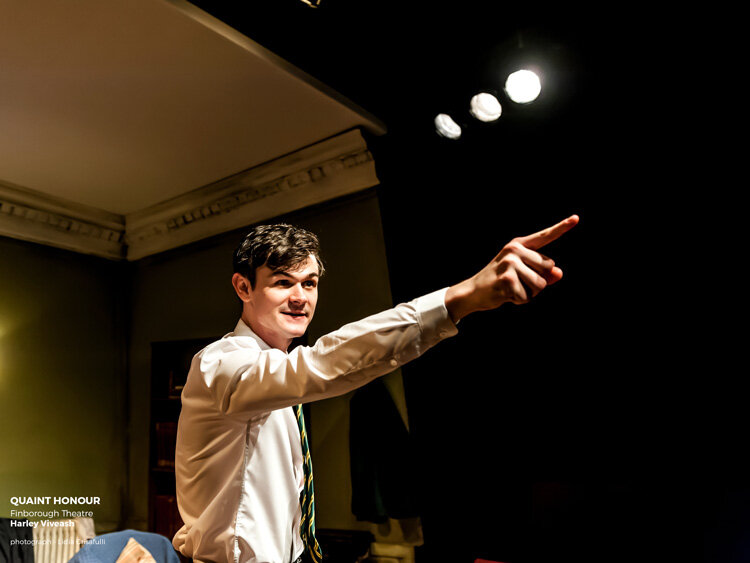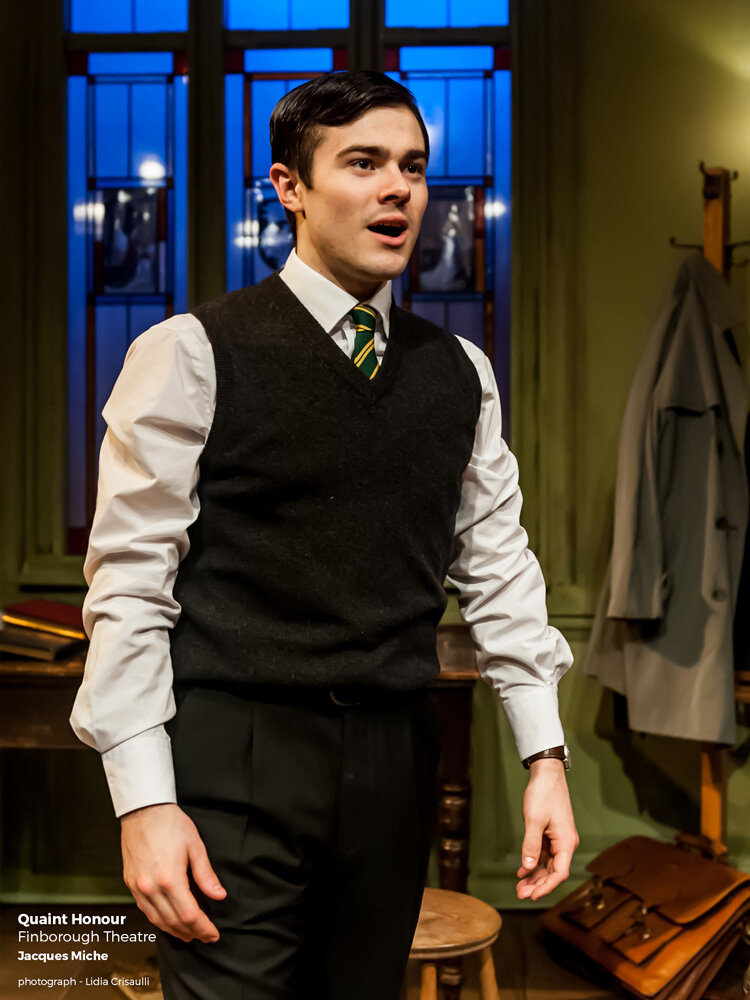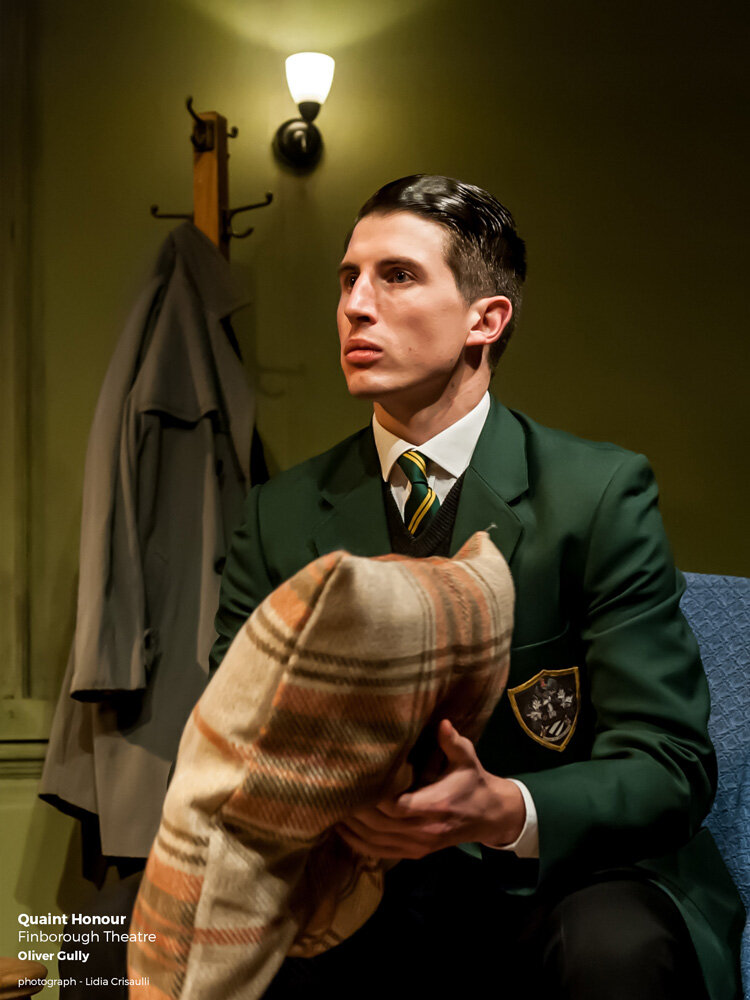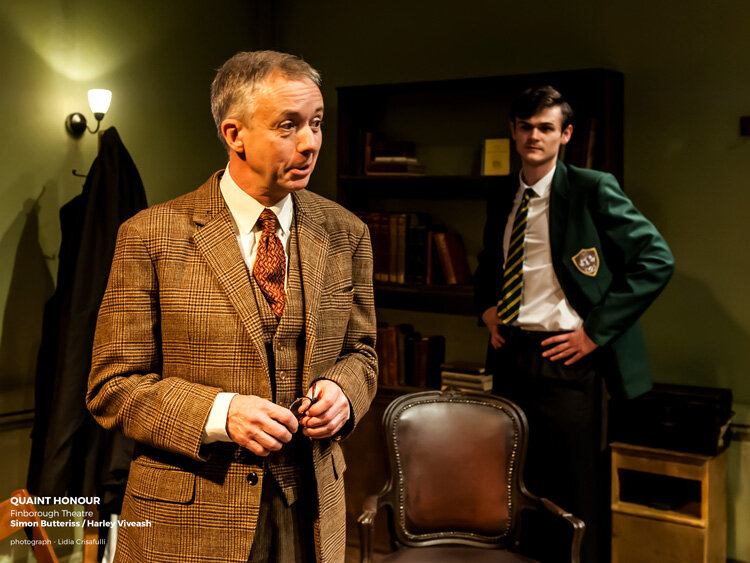Quaint Honour
The Finborough Theatre 5, 6, 7, 12, 13, 14, 19, 20 21 November 2017
I confess it was with slight trepidation that I took my seat at the Finborough Theatre for this production of Quaint Honour, given that this revival is the first time Roger Gellert’s only play has been performed for almost sixty-years. It takes us to territory probably made more familiar for a contemporary audience by E.M.Forster's 1913 novel Maurice, eventually adapted into a play in 1998, and Julian Mitchel’s more recent 1981 play Another Country. All give accounts of the 'love that dare not speak it’s name’ occurring behind the closed doors of the privileged educational establishments at a time when homosexuality was still illegal in Britain, before the partial decriminalisation act of 1967. Given that Gellert’s play will have proceeded both the adaptation of Forster's work by forty years, and Mitchell’s by twenty three, makes this an intriguing prospect from a historical perspective, but how would if stand up dramatically?
The play gets off to a good start. Hallowes, the housemaster (Simon Butteriss) has to interrupt a meeting with Head of House Park (Oliver Gulley) to give two of the schools younger boys the required, and much repeated lecture about the virtues of a pure ‘christian’ love, being for the purpose of procreation over pleasure, explaining that whilst the feelings of affection and admiration for another ‘chap’ could be considered both innocent and understandable, any thoughts or actions pertaining to a physical sexual encounter was nothing less than an abomination that could not be tolerated under any circumstances. It is against this backdrop we discover that far from these talks dissuading the boys from acting on their instincts, relationships are in fact rife amongst the pupils, with one of the boys, Turner (Jacques Miche) going so far as to cajole his house prefect Tully (Harley Viveash) into a bet, that he couldn’t seduce the rather more shy and inexperienced Hamilton (Jack Archer). Tully accepts the wager, but with puritanical Head of House Park making it his mission to rid the school of the boys with such proclivities, Tully realises he must proceed with caution, unaware that his own feelings for Hamilton are about to change everything.
There is much to like here. Yes the attitudes and moralities are very ‘of there time’, but the acting is impressive and each character is perfectly cast. The most notable performances come from Butteriss as Hallowes, who could have easily become a singular dimensioned pastiche of a bumbling housemaster, were it not for a delightfully awkward but sympathetic air he affords his character as he traverses the the tricky topic of sex with the boys. Archer also is very impressive, engagingly playing Hamilton’s naive demeanour to an uncomfortable perfection. It is Viveash as the self assured, but ultimately tormented Tully however who gives the most consistently strong performance, (imagine the love child of Matt Smith and Alexander Armstrong, were such a thing a possibility). These three actors are assisted in their roles by having the biggest character arcs to explore, but it is in getting to some of their key moments that the cracks in this otherwise worthy play begin to show, as it sometimes just takes far to long to get anywhere, being at times both woefully and unnecessarily verbose, which serves only to interrupt rather than enhance the flow of the play. Add to this the well executed yet rather austere clipped dialogue of the time, and both elements seem to conspire at times to bury the emotional and dramatic heart of the play. That the actors are successful in wrestling it back for a number of impressively moving scenes says a lot about the acting talent on display here, and thankfully by the time Archer produces genuine tears at a defining moment in his journey, we are thankfully once again invested enough to be genuinely moved.
Pace has remained the biggest issue in a number of revivals we have seen this year, and I suppose the dilemma must always be wether to stay true to the original text, or to judiciously edit for a contemporary audience. With a couple of misplaced diatribes adding little to the impact of this 2+ hour play, I think the text could possibly have been revised slightly for the dramatic greater good. That said, Quaint Honour remains highly watchable and, as possibly the final production we will see this year marking the 50th anniversary of the sexual offences act, it’s not without merit as a reminder of the social mores of the time.
★★★ and a half




